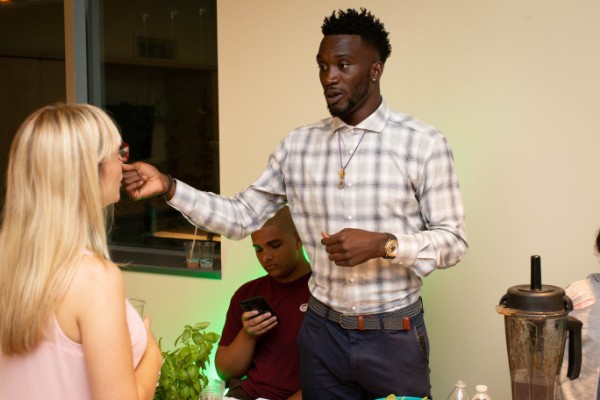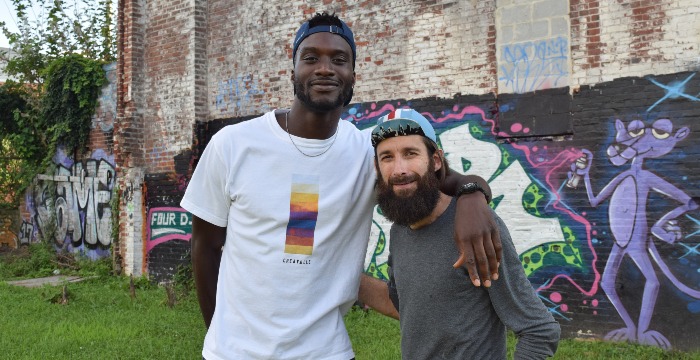
Philly Union Player CJ Sapong Grows His Green Nonprofit
Philadelphia Union forward CJ Sapong lives by a simple mantra: “baby steps.”
Those two words have guided him both in his soccer career and as he builds his nonprofit, Sacred Seeds. If you attended SustainPHL, you may have heard Sapong talking all about it at the Munch and Learn.
The project aims to nourish and educate youth in underserved communities. How? By identifying nutrient deficiencies in those areas and creating urban gardens and greenhouses in order to address them. These “Sacred Spaces” and “Seed Labs” will help teach kids how to grow their own fruits and vegetables.
A year and a half in, Sacred Seeds is still getting off (“or in,” Sapong joked) the ground. For Sapong, it’s easy to get frustrated by this slow start. As a professional athlete, he’s used to constantly measuring his own progress and status.
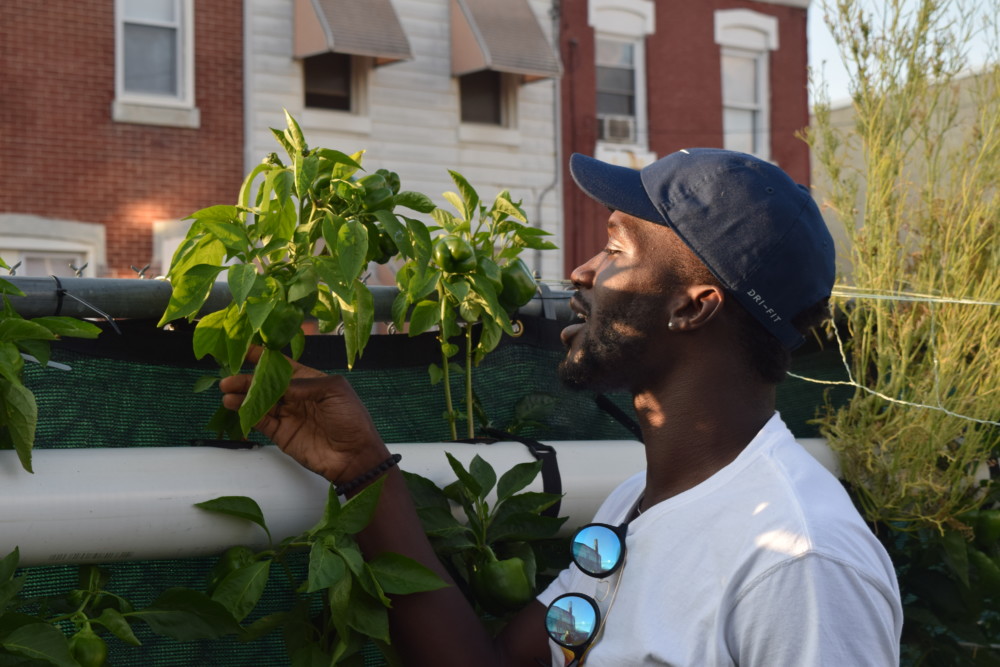
“I haven’t really seen results and haven’t had a lot of product,” Sapong says. “And I had my own moments of feeling like I wasn’t doing what I need to. But now I understand it is really part of the journey, the baby steps. So that’s a really cool, cool feeling.”
Planting the Idea for Sacred Seeds
The idea for Sacred Seeds came to Sapong while treating his sport-related injuries. He wanted to try more natural alternatives to his medication and started growing his own microgreens. In doing research about it, he stumbled across data about nutrient deficiencies among young people in low-income neighborhoods. These areas are dubbed “food deserts” — places where access to fresh and healthy food is virtually nonexistent.
“I started to feel just instant gratification of feeling healthier, more energized, but mostly empowered, like connected,” he said. “I was rushing home from practice to go talk to my plants and water them.”
He wants to bring that same gratification to kids in places like Kensington, a prime example of a food desert. That’s why Sapong decided to start his project there. With the help of Adam Rybarczyk, a self-taught urban gardener and Union fan, he found a lot for sale in the neighborhood. In the past few months, the two worked to clear it of trash and jungle-like grass.
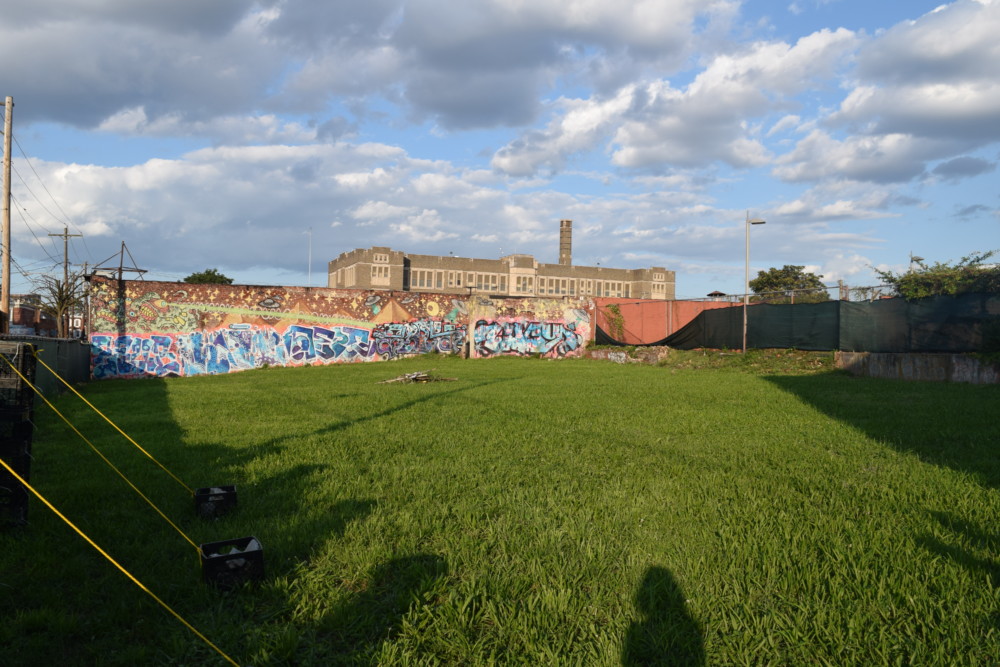
Sacred Seeds’ lot in Kensington.
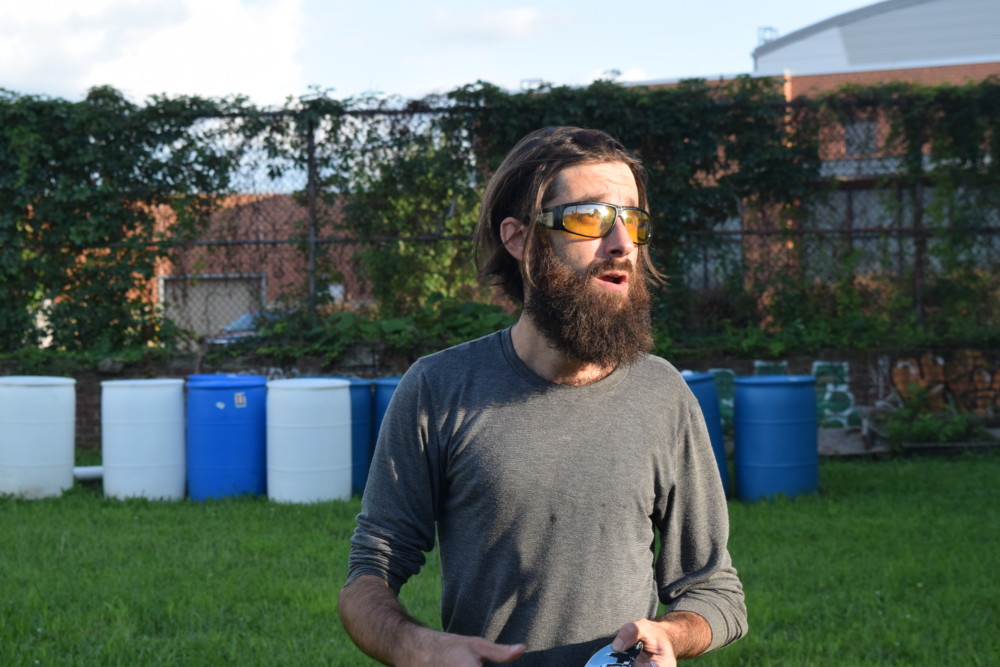
Rybarczyk talking shop.
Now it’s home to Rybarczyk’s homemade hydroponic drip garden. The system of pipes and barrels allows plants to grow in nutrient-rich water. It’s a method that’s especially useful in cities, where the soil is often unfit to foster life.
He uses barrels donated by Philadelphia Brewing Company, which caught wind of Sacred Seeds and wanted to lend a hand. It’s just one examples of the partnerships that have been sprouting since the nonprofit’s founding.
“Another thing that we’re harping on is the collaborative, cohesive process of growth,” Sapong said. “We don’t have to do it all ourselves. Let’s do it together.”
The garden is flourishing with cucumbers, basil, green peppers, and more. By giving out the produce to people in the neighborhood, Sapong and Rybarczyk have already started to get Sacred Seeds’ name out there. Sapong also envisions a firepit and courtyard in the space, in order to encourage community gatherings and events, like yoga or dance classes.
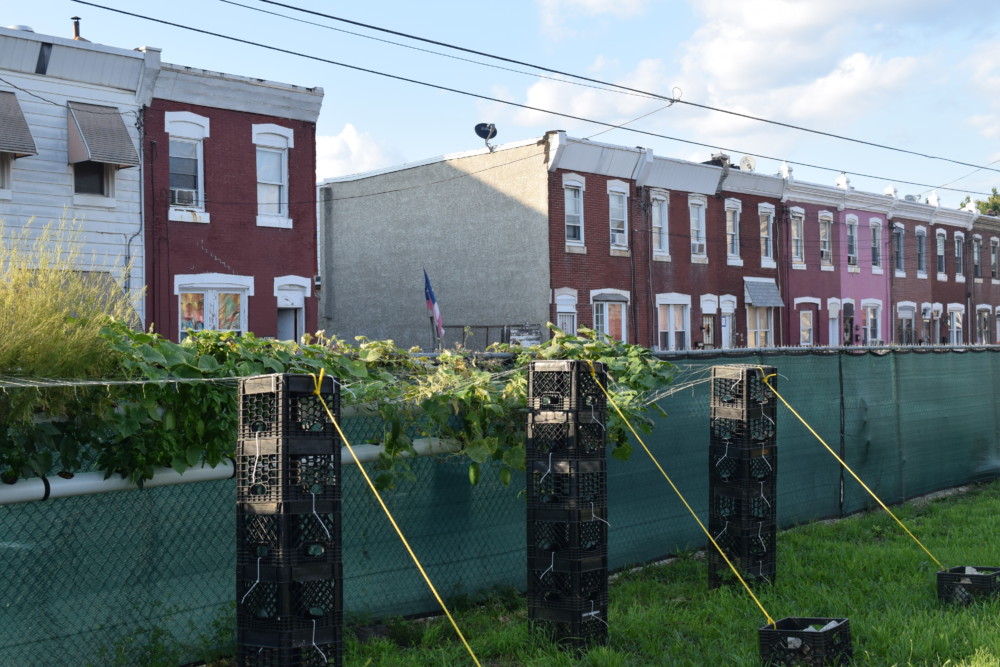
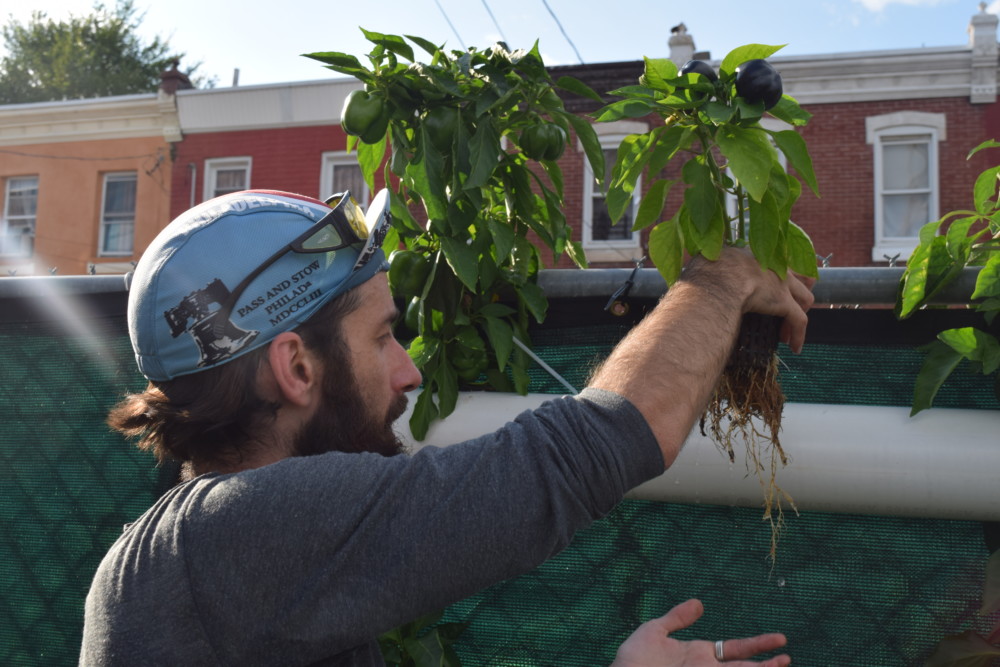
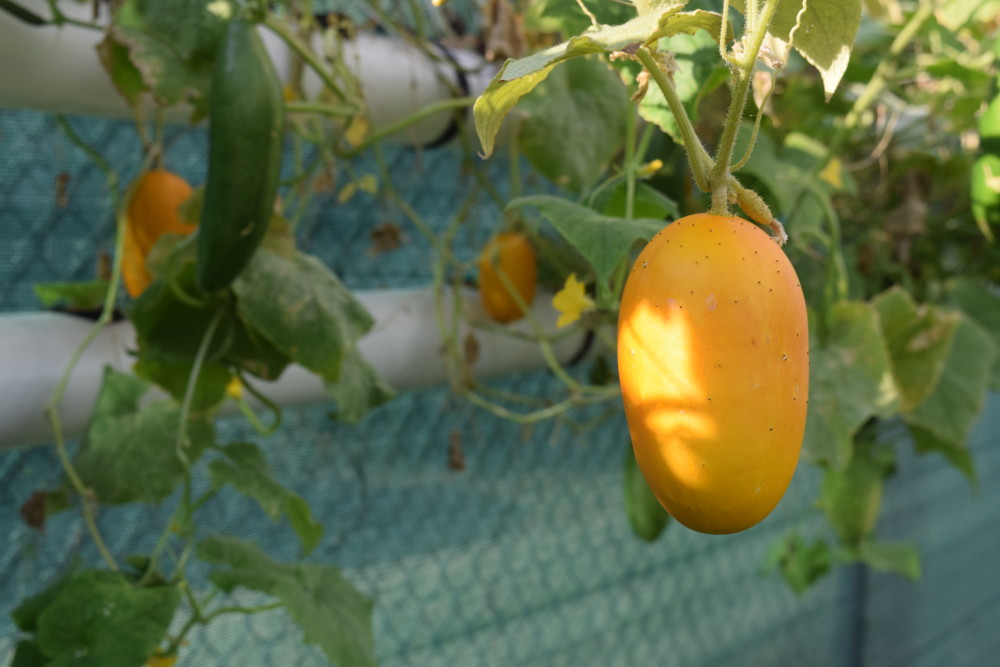
The hydroponics lab.
He’s carefully developed a 30-page curriculum for his classes and workshops about community gardening. The education aspect to Sacred Seeds is key.
“We want to create a lifestyle that, now that this kid has spent however many weeks at Sacred Seeds…they feel empowered to go into their community and start making changes,” he said.
There are a few other locations in the works, two of which are at charter schools in the area. The biggest obstacle, Sapong says, is securing more funding. They’ve made some headway with crowd-funding, but he plans to apply for grants.
Sacred Seeds has its roots in the ground, and slowly but surely, it’s growing.
“I’m getting healed myself just doing this,” Sapong said. “And we haven’t even really scratched the surface of what we can and want to do. So exciting times.”



